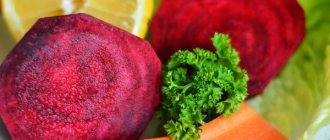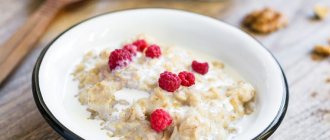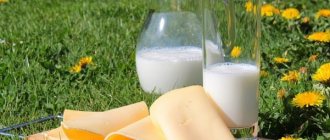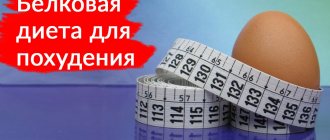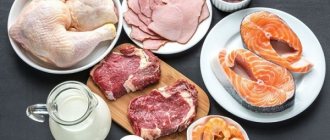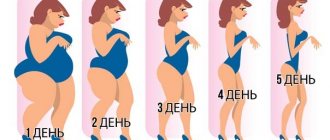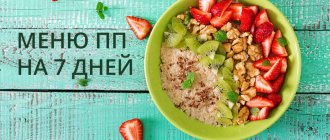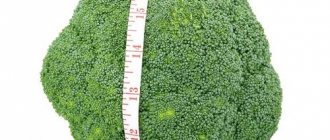7-day diets, actively used by pop and movie stars, allow you to return your body to its lost shape in a short period of time, allowing you to shine at an important event.
The effectiveness of dietary restrictions is due to the principle of autophagy, which activates cellular metabolic processes that force the body to obtain energy from its own reserves, thereby eliminating accumulated fat deposits in a short time.
Features of short-term diets
A diet for 7 days is effective (the minus of any strict dietary restriction is usually from 5 to 10 kg, depending on the initial body weight) - express weight loss, which allows you to quickly launch metabolic processes that contribute to the breakdown of accumulated mass.
The basis of all express diets is the need to strictly limit the usual diet to a certain set of foods, excluding quickly digested carbohydrates.
Rules for all fast diets:
- complete removal of sugar and salt from the menu (including substitute);
- strict adherence to the drinking regime established by the diet;
- refusal of fatty foods, fast food, alcohol, carbonated drinks;
- the need for regular sports training, which accelerates the fat burning process.
Protein diet
The protein diet is considered one of the gentlest because it does not require severe dietary restrictions. The effectiveness of weight loss here lies in the complete exclusion of carbohydrate foods from the diet, replaced by protein foods.
In case of lack of energy, the body begins to process its own reserves, breaking down previously accumulated fat, which leads to rapid cleansing of the body and weight loss.
Pros of the diet:
- varied menu;
- lack of strong feelings of hunger;
- rapid weight loss (up to 5 kg per week);
- there is no need to strictly count calories;
- low risk of regaining lost kilograms, since protein foods trigger increased metabolism;
- the opportunity to achieve stunning results when combining nutrition with sports activities.
Contraindications for use
The protein diet, despite its excellent characteristics, is indicated only for healthy people who do not have problems with the gastrointestinal tract, cardiovascular and endocrine systems. The diet should not be used for chronic dysfunction of the liver and pancreas, since an increase in protein foods increases the load on the gastrointestinal tract.
During a diet, even healthy people may experience:
- digestive disorders;
- depression caused by a lack of carbohydrates in the diet;
- putrid odor from the mouth caused by the processing of fiber.
Diet by day
For 7 days you must eat in small portions (up to 6 times a day) and only with approved foods.
The daily diet should consist of:
- low-calorie fermented milk products, lean meats, fish, poultry;
- green vegetables and fruits (tomatoes are also allowed);
- spices and lemon juice.
Not allowed on a diet:
- porridge, except buckwheat and unprocessed rice;
- red berries, fruits;
- potato;
- any sweets, including sugar and its substitute;
- smoked sausages and frankfurters;
- bread (except toast in minimal quantities);
- pasta;
- butter
Possible diet:
| 1st day | |
| breakfast |
|
| 2nd meal | 250 ml biokefir |
| dinner |
|
| afternoon tea | grapefruit |
| dinner |
|
| 2nd day | |
| breakfast |
|
| 2nd breakfast | pear soufflé |
| dinner |
|
| afternoon tea | pineapple pieces |
| dinner |
|
| 3rd day | |
| breakfast |
|
| 2nd breakfast | grated apples with carrots |
| dinner |
|
| afternoon tea | organic yogurt |
| dinner |
|
| 4th day | |
| breakfast |
|
| 2nd breakfast | pear |
| dinner |
|
| afternoon tea | pomelo |
| dinner |
|
| 5th day | |
| breakfast |
|
| 2nd breakfast | Orange |
| dinner |
|
| afternoon tea | organic yogurt |
| dinner |
|
| 6th day | |
| breakfast |
|
| 2nd breakfast | Any sour fruit |
| dinner |
|
| afternoon tea | organic yogurt |
| dinner |
|
| 7th day | |
| breakfast |
|
| 2nd breakfast |
|
| dinner |
|
| afternoon tea | peaches |
| dinner |
|
Following a 7-day diet will allow you to lose up to 5 kg per week.
Prohibited foods on a low-calorie diet
One of the nuances of this type of weight loss is the monotony of nutrition. All products - meat, fish, vegetables - are consumed exclusively boiled, steamed or baked.
The lowest calorie diet involves the use of special nutritional mixtures, the role of which is to suppress strong feelings of hunger.
When following a low-calorie or low-protein diet, you need to remove the following foods from your diet:
- bakery products based on puff pastry or butter dough;
- potato soups with cereals;
- fatty types of meat: goose, duck, lamb, pork;
- fatty fish;
- oatmeal, semolina and rice porridge;
- marinades and pickles;
- fruits and sweet berries;
- any kind of sweets and desserts.
Kefir diet of Larisa Dolina
An effective 7-day diet (minus dietary restrictions, developed specifically for movie stars, ranging from 3 to 7 kg) presented by the famous singer Larisa Dolina is an emergency course aimed at cleansing the body through the daily consumption of biokefir.
This diet helps to quickly restore shape and remove accumulated waste and toxins, but requires very strict dietary restrictions. The essence of the diet is the daily consumption of at least 0.5 liters of biokefir (a low-calorie fermented milk product without any additives), combined with a certain set of foods. The list of meals cannot be changed at will.
To reduce the feeling of hunger, 30 minutes before meals you need to drink about 100 ml of herbal (chamomile, green, ginger) tea, which copes well with the feeling of hunger. Unlike other diets, Larisa Dolina's method limits daily water consumption to 0.5 ml.
Contraindications
Contraindications to the use of the singer’s diet are:
- immune pathologies;
- problems with the gastrointestinal tract;
- intolerance to kefir and dairy products;
- exacerbation of chronic pathologies;
- pregnancy;
- children under 18 years of age.
Since the diet is very low in calories and involves minimal protein consumption, it is advisable to practice it only after consulting a doctor. Within seven days you also need to be prepared for the appearance of general weakness.
The actress’s meals are distributed throughout the day and should not be changed at your own discretion. The permitted list of products is combined with biokefir (up to 0.5 per day), which is mandatory for the entire period except the last (7th day).
Diet:
| 1. | 400 gr. boiled (baked) potatoes |
| 2. | 450 ml sour cream (fat content up to 15%) |
| 3. | 450 gr. low-calorie cottage cheese |
| 4. | 500 gr. boiled (steamed) chicken meat without skin |
| 5. | 300 gr. carrots and 200 gr. apples |
| 6. | only biokefir |
| 7. | Only mineral water is allowed |
Following a diet will allow you to lose 7 kg in a week.
Diet for intestinal diseases
Any diet for gastrointestinal diseases is designed to prevent any irritation of the intestinal mucosa. Although they are not able to influence the disease as such, with the right choice of food and its processing, the patient’s already significant discomfort is not aggravated. A proper diet with specially selected foods can speed up the healing process of the intestinal mucosa and alleviate the symptoms of the disease.
We recommend
“Flax for the intestines: benefits and recommendations” Read more
Most often, doctors of classical medicine for acute intestinal diseases and digestive disorders prescribe therapeutic diet No. 4, developed by gastroenterologist professor Manuil Pevzner. This nutrition system has several variations, depending on the patient's condition.
Diet No. 4 is a therapeutic diet, the main purpose of which is to reduce the load on the gastrointestinal tract and is prescribed for acute and chronic intestinal diseases, which are accompanied by diarrhea, bloating and other digestive disorders. The diet is prescribed for a fairly short period of time (from 3 to 7 days); in extreme cases, the duration of the diet can be increased to 14 days.
Study
: Prevention of cholic non-ulcerative colitis and irritable bowel syndrome
In addition, the diet is used for colitis and exacerbations of chronic gastrointestinal diseases (ulcers, gastritis, dysphagia). In such conditions, the patient develops dyspepsia, which is characterized by stool upset, abdominal pain, nausea, and cramps. Therefore, therapeutic nutrition should fully provide the patient during this period not only with nutrients, but also help reduce inflammatory reactions from the gastrointestinal mucosa.
The diet is also aimed at restoring microflora, relaxing muscles, and improving intestinal motility. The goal of a therapeutic diet is to ensure maximum relief of the digestive process, and as a result, restoration of the entire gastrointestinal tract. Table No. 4 provides for a special menu with strict control of the food consumed. But the main attention in this diet is given to sparing and restoring the mucous membrane of the gastrointestinal tract.
The basic principles of the 4 table diet are as follows
:
- Compliance with the calorie content of the diet (about 2050 kcal per day); in case of exhaustion or diarrhea, the daily calorie content can be increased to 2500-3000 kilocalories.
- Consuming 100 g of protein per day, including 70% animal origin, 250 g of carbohydrates, 70 g of fat.
- Limiting salt and sugar.
- Drink 1.5 liters of water daily.
- Cooking only by stewing and boiling.
- Eating food in liquid and pureed form.
- Fractional meals (4-5 times a day).
Features of cooking
In order to improve the general condition, improve the functioning of the intestines and reduce inflammation in it, you should adhere to certain rules of cooking
:
- In the process of preparing soups, you can use vegetable and weak meat broths.
- Porridge can only be cooked with water and broth. They prefer slimy and ground porridges.
- Meat dishes can consist of whole pieces of meat, fish or minced meat (meatballs, meatballs), prepared by stewing and steaming.
- Vegetables are consumed after heat treatment in soups or as purees in limited quantities. For constipation, the amount of vegetables consumed can be increased to 300 grams per day.
- It is recommended to consume 1 egg per day, mainly as part of meals.
- Fried and baked foods are prohibited.
- It is necessary to observe the principle of thermal sparing, which provides for food temperatures ranging from 15 to 45 degrees.
Fruit and vegetable diet
An effective diet for 7 days (minus fruit and vegetable nutrition can be up to 6-7 kg per week) consisting exclusively of vegetables and fruit is considered very effective for quickly restoring body parameters. Such nutrition is considered tough and ideal for the summer-autumn harvest period, since it makes it quite inexpensive, but very productive.
The fruit-vegetable diet is very strict and difficult to implement, since it completely lacks protein and carbohydrate foods, as well as fats. Such nutrition can be carried out for no more than 7 days, since in the future the risk of carbohydrate-protein starvation of the body and deficiency of omega-3 and multivitamins increases.
The essence of the dietary diet is to compile a diet consisting only of fruit and vegetable foods, divided by days or periods of the day. During the diet, you should not salt or sweeten food. Water should be drunk in the amount of 1.5 liters per day (juice, tea, compote).
The diet should be composed only of low-starch vegetables (cucumbers, zucchini, radishes, cabbage, beets). Starchy vegetables (potatoes, eggplants, pumpkin, peas) are allowed to be consumed only in limited quantities and after heat treatment.
Fruits you should give preference to:
- apples;
- plums;
- peaches;
- apricots;
- citrus;
- pineapples
You can't eat only mangoes, bananas and grapes.
Contraindications
Only healthy people are allowed to adhere to a fruit and vegetable diet.
Low-calorie nutrition is strictly contraindicated:
- pregnant women and nursing mothers;
- children under 18 years of age;
- for pathologies of the gastrointestinal tract, cardiovascular and endocrine systems;
- suffering from diabetes, allergic reactions, anemia.
During the diet, stool disturbances and bloating of the body may occur, which can be relieved with appropriate medications. Before starting the diet, the body should be prepared by doing a cleansing enema and taking absorbents.
Menu
The diet is prepared strictly by the hour. You can eat fruit for breakfast, afternoon snack and lunch. It is recommended to leave lunch and dinner for vegetable foods.
| 1st day | |
| Breakfast |
|
| Lunch | plums |
| Dinner |
|
| Afternoon snack | pears |
| Dinner | stewed white cabbage |
| 2nd day | |
| Breakfast |
|
| Lunch | peaches |
| Dinner |
|
| Afternoon snack | apples |
| Dinner |
|
| 3rd day | |
| Breakfast |
|
| Lunch | peaches |
| Dinner |
|
| Afternoon snack | plums |
| Dinner |
|
| 4th day | |
| Breakfast | baked apple |
| Lunch | fresh tomatoes |
| Dinner |
|
| afternoon tea | peaches |
| Dinner |
|
| 5th day | |
| Breakfast |
|
| Lunch | Any fruit |
| Dinner |
|
| Afternoon snack | fruit salad |
| Dinner |
|
| 6th day | |
| Breakfast |
|
| Lunch | Vegetable salad |
| Dinner |
|
| Afternoon snack | Peaches |
| Dinner |
|
| 7th day | |
| Breakfast |
|
| Lunch | Any fruit |
| Dinner |
|
| Afternoon snack | Fruits |
| Dinner |
|
When severe hunger occurs, it is allowed to include protein foods in the diet, including:
- low-calorie fermented milk products;
- hard cheeses;
- cereals;
- lean meats, skinless chicken and turkey;
- seafood;
- nuts;
- dried toast bread.
Such food must be subjected to heat treatment and consumed no more than 150 grams for breakfast, lunch, and dinner.
Japanese diet
The people of Japan are famous for their restraint and asceticism, so the secret to the slimness of Japanese women lies in a moderate and modest diet. The Japanese diet has won the hearts of Europeans with its simplicity, effectiveness and availability at any time of the year.
List of weight loss products in Japanese:
- veal (lean beef), chicken breast, sea fish fillet;
- chicken eggs;
- tomato juice without salt and sugar, kefir 0% fat;
- white cabbage, carrots, zucchini, eggplant;
- sweet and sour apples;
- rye or bran bread (biscuits);
- sunflower or olive oil, lemon juice;
- green leaf tea, natural ground coffee.
The essence of the “Japanese” diet is a strict salt-free diet and three meals a day without snacks between meals.
In the morning, drink a cup of green tea or coffee, and eat one diet bread or fresh carrot for breakfast. Original lunch and dinner menu for 14 days of the Japanese diet
| Day | Dinner | Dinner |
| 1 | 2 eggs, boiled cabbage, juice | 200-300 g fish |
| 2 | 200-300 g fish, cabbage salad | 200 g veal, kefir |
| 3 | Stewed zucchini or eggplant | 200 g veal, 2 eggs, cabbage salad |
| 4 | One egg, 2-3 carrots | 200-300 g apples |
| 5 | 300 g fish, juice | 200-300 g apples |
| 6 | Chicken breast, cabbage and carrot salad | 2 eggs, one carrot |
| 7 | 300 g veal | 200-300 g apples or 2 eggs with carrots or 200 g veal and kefir |
| 8 | Chicken breast, cabbage and carrot salad | 2 eggs, one carrot |
| 9 | 300 g fish, juice | 200-300 g apples |
| 10 | One egg, 2-3 carrots | 200-300 g apples |
| 11 | Stewed zucchini or eggplant | 200 g veal, 2 eggs, cabbage salad |
| 12 | 200-300 g fish, cabbage salad | 200 g veal, kefir |
| 13 | 2 eggs, boiled cabbage, juice | 200-300 g fish |
| 14 | 200-300 g fish, cabbage salad | 200 g veal, kefir |
Best materials of the month
- Coronaviruses: SARS-CoV-2 (COVID-19)
- Antibiotics for the prevention and treatment of COVID-19: how effective are they?
- The most common "office" diseases
- Does vodka kill coronavirus?
- How to stay alive on our roads?
Vegetable salads made from cabbage and carrots are seasoned with 1 tbsp. l. vegetable oil. Meat and eggs are consumed only boiled; fish can be prepared in any convenient way. A single serving of tomato juice and kefir is 250-300 ml (one glass).
You are prohibited from making changes to the menu yourself. The average daily caloric content of a Japanese woman’s diet does not exceed 1000-1200 kcal, so it is necessary to additionally take a vitamin complex and devote time to proper rest.
Diet "7 cereals"
An effective diet for 7 days (the minus on a grain diet, subject to the nutritional conditions and rules for preparing cereals, should be from 5 to 7 kg) consisting of a variety of cereals will not only cleanse the body, but will also provide the cells with the nutrients and vitamins necessary for development.
Grains are considered complex carbohydrates that do not turn into fat deposits.
Daily consumption of cereals will allow you to:
- normalize digestion due to a large amount of dietary fiber;
- cleanse the body of waste and toxins;
- remove excess water, activating the diuretic effect;
- prevent severe hunger;
- saturate tissues with vitamins and minerals.
The “7 cereals” diet consists of daily consumption of one type of cereal, cooked in a special way:
- millet;
- wheat;
- oatmeal;
- rice;
- pearl barley;
- buckwheat;
- a mixture of various cereals.
Before cooking, the cereal must be thoroughly rinsed (3-4 times) and boiled in slightly salted water, without adding oil.
During the diet, you are allowed to supplement the following cereals:
- low-starch vegetables (cucumbers, tomatoes, cabbage, carrots, beets);
- apples, pears, berries;
- organic yogurt;
- cottage cheese;
- mineral water and green tea (at least 1 liter per day).
Before starting the diet, the body must be prepared by undergoing a cleansing enema, and before each meal you should drink at least 1 tbsp. water or herbal infusion to relieve hunger.
Contraindications
Diet contraindicated:
- for diabetes mellitus;
- for diseases of the gastrointestinal tract;
- for gluten intolerance;
- with anemia;
- while waiting and feeding the baby;
- teenagers under 18 years old
Menu
Diet for the week:
| 1st day | Millet porridge. For breakfast and lunch, you can add bio-yogurt and dried fruits to your diet. |
| 2nd day | Wheat porridge with fruits. For lunch, a salad of cucumbers and tomatoes, with herbs and vegetable oil is acceptable |
| 3rd day | Oatmeal with nuts, dried fruits and berries. Bioyogurt. |
| 4th day | Rice porridge with apples and pears. Low-fat cottage cheese. |
| 5th day | Pearl barley porridge with carrot puree. Vegetable salad with radishes. |
| 6th day | Buckwheat porridge with cottage cheese, yogurt, baked pears and apples |
| 7th day | |
| Breakfast | Oatmeal with berries and nuts; |
| Dinner | Vegetable salad with buckwheat; |
| Dinner | Rice with cottage cheese and baked apples |
How to choose a diet for 2 weeks
Content:
- How to choose a diet for 2 weeks
- Who is the 2 week diet suitable for?
- The best diets for 2 weeks
- Protein diet
- Japanese diet
- Buckwheat diet
- Life after diet
Two weeks is the optimal period for those who need to get rid of 3 to 7 kg, but for this it is necessary to select a dietary diet in accordance with the individual needs and characteristics of the human body. A wide range of diets to suit every taste and pocket, unfortunately, does not make it easier to find a suitable weight loss program.
When choosing a weight loss method, you need to remember that not everything is gold that Hollywood stars use to lose weight. A diet should be abandoned if it was created by a person without special education in the field of dietetics, published on a little-known website without a link to the source, is not included in the list of diets recommended by popular healthy eating portals, is promoted using viral advertising, and promises fantastic results in a short period of time. , is based on fasting, taking dubious fat-burning drugs and other types of self-torture, violates the well-known principles of proper nutrition, or includes hard-to-find foods or difficult-to-cook dishes in the weight loss menu.
If the chosen weight loss program has at least one of the above qualities, there is a chance that two weeks of personal time will be wasted. Discussions on forums, entries in personal diaries and weight loss blogs will help you get a real idea of diets.
To successfully lose weight, you need to choose proven methods, taking into account the following nuances:
- the state of human health and the presence of contraindications to following the diet;
- initial BMI and desired result;
- lifestyle, physical activity and daily schedule;
- financial capabilities and availability of diet component products;
- personal culinary preferences.
Even the best methods have their advantages and disadvantages, so before you start losing weight, you need to weigh the pros and cons. It should also be noted that the expected results indicated in the description of fast diets are always exaggerated.
Drinking diet
An effective minus of up to 10 kg, depending on the fat layer, can be obtained by following a strict “drinking” diet for 7 days, based on alternating drinking and nutritional days.
What can you drink during a drinking diet for 7 days?
The essence of this diet is to completely exclude from the diet:
- confectionery, desserts, sugar;
- fatty products (meat, poultry, slave);
- canned food;
- lemonade;
- alcohol;
- root vegetables rich in starch.
- of bread;
- pasta
Limited nutrition helps to thoroughly cleanse the body, but may be accompanied by severe hunger, especially in a person who is not accustomed to food restrictions.
Contraindications
The drinking express diet is not allowed for people suffering from:
- gastrointestinal diseases (chronic or acute);
- immune pathologies;
- nervous system disorders;
- endocrine dysfunctions, including diabetes mellitus.
Women who are expecting a child or breastfeeding, as well as teenagers under 18 years old, should not adhere to diets.
Sample menu for the week
The essence of the diet is to distribute food on certain days, combined with a fasting period:
| 1 day | Any type of liquid is allowed:
|
| 2nd day | Vegetable. All food should be strictly from root vegetables. You can eat any vegetables except potatoes. It is advisable to eat salads with the addition of fresh or sauerkraut. |
| 3rd day | Unlimited drinking only |
| 4th day | Fruits. Any fruit except bananas. It is necessary to include pineapples and grapefruit (or pomelo) in your diet. |
| 5th day | Drinking only |
| 6th day | Protein food. You are allowed to eat boiled or baked chicken breast, yogurt and boiled eggs |
| 7th day | Quitting the diet |
| breakfast | 2 boiled eggs or an omelette made from them |
| lunch | Any fruit |
| dinner | broth with chicken breast and buckwheat |
| afternoon tea | fruits |
| dinner | vegetable salad seasoned with lemon juice and parsley |
The diet is considered very strict, but allows you to lose up to 10 kg in a week.
Reviews and results
The seven-day period showed its best side and, according to those who have already lost weight, it really works. If you follow the basic rules, you can adjust your weight to the desired result within a week. Try not to choose too strict options; as a rule, the weight returns and even increases after leaving the diet. A diet that promises minus 15 kg in 7 days will cause more harm to your health than the aesthetic pleasure of the extra pounds you have left behind. And don't forget to take multivitamin complexes to keep your hair, nails and skin healthy.
Atomic Diet
The effectiveness of the “atomic” diet is based on the principle of separating the consumption of carbohydrate and protein foods. A fairly easy-to-follow diet allows you to eat well without restricting your body in the necessary calories. The diet is based on activating the process of fat burning, which occurs in the case of separate consumption of protein and carbohydrate foods.
According to the rules of the “atomic” diet:
- Sugar and confectionery products should be completely excluded from the diet;
- All vegetables (except potatoes) and fruits (grapes and bananas are not allowed) are considered changeable for consumption;
- dinner is served 2-3 hours before going to bed;
- It is allowed to introduce a diet of fresh juices, smoothies (on carbohydrate days), bio-yogurt and kefir (on protein days).
Contraindications
Fractional meals are contraindicated for persons suffering from:
- dysfunctions of the digestive tract;
- neuropsychological disorders;
- problems with the thyroid gland
Any diets are also contraindicated for expectant and breastfeeding mothers, as well as adolescents at the stage of puberty.
Sample menu
The 7-day diet consists of:
- Protein days, allowing the consumption of lean types of meat, fish, poultry, seafood, eggs and cottage cheese.
- Carbohydrate days, allowing only fruit and vegetable foods.
Menu for 7 days of the week
| 1st day | |
| Breakfast | Cottage cheese with dried fruits and yogurt |
| Dinner | Chicken broth with meatballs |
| Dinner | Baked cod fillet |
| 2nd day | |
| Breakfast |
|
| Dinner |
|
| Dinner | vegetable salad dressed with lemon juice |
| 3rd day | |
| Breakfast |
|
| Dinner |
|
| Dinner |
|
| 4th day | |
| Breakfast |
|
| Dinner |
|
| Dinner |
|
| 5th day | |
| Breakfast |
|
| Dinner |
|
| Dinner |
|
| 6th day | |
| Breakfast |
|
| Dinner |
|
| Dinner |
|
| 7th day | |
| Breakfast |
|
| Dinner |
|
| Dinner |
|
At the end of the 7th day, you can gradually introduce protein dishes into the carbohydrate menu.
Grapefruit diet
Are you overweight and don't know how to lose weight quickly? Don't be upset! There is a fairly simple and affordable way to lose weight and lose weight - this is the grapefruit diet. The grapefruit diet is very simple and affordable, and the result speaks for itself - minus 5 kg per week.
Beneficial properties of grapefruit
Why is grapefruit the basis of this diet? It’s just that these fruits contain substances that help burn fat in the body faster and prevent new fat from being deposited. Grapefruit contains substances - enzymes that force our liver to burn accumulated fats faster.
In addition, grapefruits contain a lot of vitamin C, which will benefit our health and our skin. The grapefruit diet is very effective. But to achieve the desired result, which means getting rid of excess weight, you must strictly follow its rules.
During the diet, you must completely avoid salt, sugar, and spices. During the diet, you are allowed to eat only dietary meat - rabbit or poultry, lean fish. You should also not eat after 6 pm and drink a lot - at least two liters of clean water every day.
Approximate nutrition plan on the grapefruit diet
On the first day of the diet, you should eat half a grapefruit for breakfast or drink a cup of freshly prepared juice and eat a piece of ham or an egg.
For lunch on the first day, you can eat vegetable soup or a salad of tomatoes and cucumbers with olive oil and eat another half of a grapefruit.
For dinner you can eat 100 grams of lean meat and you need to eat another half of a grapefruit.
The remaining six days of the diet are no different from the first. The main thing is moderation in food and eating grapefruit every day. You can prepare yourself a variety of salads, porridges with water, and at night you can drink a cup of low-fat kefir or green tea.
Please note that you should eat grapefruit with the partitions between the segments, since it is in these partitions that the maximum amount of enzymes that contribute to the burning of fats is found.
Who is the 2 week diet suitable for?
Before going on a diet, you need to decide in advance how many kilograms you need to lose by a specific date. The two-week diet is well tolerated by the body with the most balanced nutrition and weight loss of up to 2 kg per week. Diets with strict restrictions, which allow you to lose twice as many extra pounds in two weeks, are suitable only for absolutely healthy people who are confident in their abilities.
Before starting a diet, you need to make sure there are no contraindications to losing weight:
- acute and chronic diseases, viral infections;
- weakened immunity, anemia, insulin dependence;
- allergies to food components of the diet;
- recovery after serious illnesses, surgeries, childbirth;
- unstable hormonal levels, puberty;
- pregnancy, breastfeeding;
- body dysmorphic disorder, eating disorders and mental illness.
Those who hope to lose 10 kg or more in two weeks are advised to abandon this idea and pay attention to weight loss diets based on a nutritious healthy diet, which can be followed until the desired result is achieved. You need to understand that safe weight loss with high initial values should not exceed 2-3 kg per week.
How soon should I expect results?
The effectiveness of short-term diets depends on the amount of body fat and sludge in the body. Severely overweight people with severe dietary restrictions can lose more than 10 kg in a week. Those who practice strict diets to quickly regain shape should be prepared to part with 5-7 kg.
An unpleasant bonus will be the rapid return of lost kilograms after completing emergency weight loss. To prevent undesirable effects, your daily diet should be based on a gentle diet, constantly practice reasonable physical exercise and avoid large amounts of fatty foods, fast food and confectionery.
Short-term diets are very effective, allowing you to lose 5 to 10 kg over a 7-day period, but are associated with a lot of unpleasant restrictions.
Despite the good results, you should not get carried away with emergency fasting, since along with the fat layer the body loses many useful substances, which invariably provokes bowel dysfunction, digestive problems, poor health and loss of strength.
Article design: Vladimir the Great
